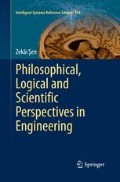Abstract
Today specifically four-year bachelor engineering education systems are almost stagnant with memorable, traditional, imitative, repetitive and unquestionable information transmissions without interactive debate and criticism. Engineers try to find solutions either as ready procedures, algorithms, formulations or in modern times through internet facilities and software. Even though it has many traditional aspects, static education system and modern engineering topics did not lose much significance along the development path. In engineering education institutions rather than information and scientific knowledge generation, more practical static and unproductive methods, algorithms and software are in use, which may kill the ambitious willingness for information generation. In this manner, the art side of engineering has become weaker and weaker. Computer programs and software rendered engineering education into a stagnant routine sequence of automatic procedures and automation molds without mental, rational and logical inferences.
Access this chapter
Tax calculation will be finalised at checkout
Purchases are for personal use only
References
Biggs JB, Telfer R (1987) The process of learning. Prentice-Hall, Sydney
Carnap R (1987) The confirmation of laws and theories. In: Janet A (ed) Scientific knowledge. Wadsworth Publishing Company, Kourany
Denzin NK, Lincoln YS (2001) The discipline and practice of qualitative research. In: Denzin NK, Lincoln YS (eds) Handbook of qualitative research. Sage Publications, London
Dimitrov V (2000) Discovering fuzziology. University of Western Sydney, Sydney
Gödel K (1932) Ein Spezialfall des Entscheidungsproblem der theoretischen Logik. Ergebnisse eines mathematischen Kolloquiums 2:27–28. Reprinted and translated in (Gödel, 1986, 130–235)
Guba EG, Lincoln YS (2001) Competing paradigms in qualitative research. In: Conrad CF, Haworth JG, Latucca LR (eds) Qualitative research in higher education: ASHE reader series, 2nd edn. Pearson Custom Publishing, Boston, pp 57–72
Hilgard ER (1996) History of educational psychology. In: Berliner DC, Calfee RC (eds) Handbook of educational psychology. Macmillan, New York
Jansen G, Peshkin A (1992) Subjectivity in qualitative research. In: Le Compte MD, Millroy WL, Priessle J (eds) The handbook of qualitative research in education. Academic Press, London
Keynes JM (2004) A treatise on probability. Dover Publications, New York
Krathwohl DR (1998) Methods of educational and social science research: an integrated approach. Longman, New York, p 742
Popper KR (1957) The poverty of historicism. Routledge and Kegan Paul, London
Ramsey FP (1978) Truth and probability in foundations. In: Mellor DH (ed) Essays in philosophy, logic, mathematics and economics. Routledge and Kegal Paul, London
Ross T (1995) Fuzzy logic with engineering applications. Wiley, New York, p 628
Rowntree D (1986) Teaching through self-instruction: a practical handbook for course developers. Kogan Page, London
Schwandt TA (2001) Dictionary of qualitative inquiry. Sage Publications, London, p 281
Şen Z (2001) Angström equation parameter estimation by unrestricted method. Sol Energy 71:95–1007
Şen Z (2010a) Fuzzy logic and system models in water sciences. Turkish Water Foundation, Ankara
Şen Z (2010b) Fuzzy logic and hydrological modeling. Taylor and Francis Group, CRC Press, Boca Raton, p 340
Şen Z (2011) Fuzzy philosophy of science and education. Turkish J Fuzzy Syst 2(2):77–98
Skinner BF (1968) The technology of teaching. Appleton-Century-Crofts, New York
Türkşen B (2006) Ontological and epistemological perspective of fuzzy set theory. Elsevier Science & Technology Books, London, p 514
Zadeh LA (1973) Fuzzy sets. Inf Control 8(3):338–353
Author information
Authors and Affiliations
Corresponding author
Rights and permissions
Copyright information
© 2014 Springer International Publishing Switzerland
About this chapter
Cite this chapter
Şen, Z. (2014). Education and Engineering. In: Philosophical, Logical and Scientific Perspectives in Engineering. Intelligent Systems Reference Library, vol 143. Springer, Cham. https://doi.org/10.1007/978-3-319-01742-6_6
Download citation
DOI: https://doi.org/10.1007/978-3-319-01742-6_6
Published:
Publisher Name: Springer, Cham
Print ISBN: 978-3-319-01741-9
Online ISBN: 978-3-319-01742-6
eBook Packages: EngineeringEngineering (R0)

